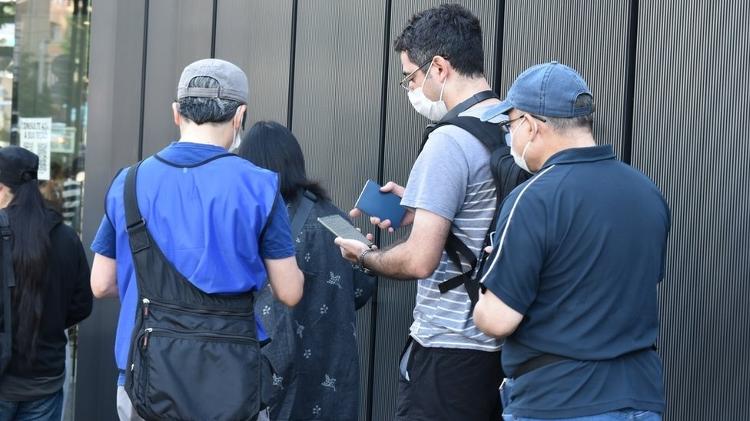Bolsonaro wins with more than half of the votes in eight polls in Japan
For those who have lived in Japan for more than 30 years since the beginning of the Dekassegi phenomenon, the result of the first-round elections held on Sunday (2/10) on Japanese soil is not surprising.
“Whatever his name is, if the candidate is from the right and has a conservative profile, he always wins here,” says Miguel Kamiunten of Paraná.
He explores the evolution of the Brazilian electorate and is a founding member of MBE (Movimentos Brasileiros Emigrados), which advocates for greater representation of Brazilians living abroad.
Re-election candidate Jair Bolsonaro (PL) won with more than half the votes in eight polls (reaching 80% in Nagoia, one of the five largest electoral colleges abroad), followed by Luiz Inacio Lula da Silva (PT). , Ciro Gomes (PDT) and Simone Tebet (MDB).
The number of voters in Japan increased by about 25% compared to 2018, from 60,000 to over 76,000.
The growth in four years was partly due to the issuance of Brazilian documents such as the CPF and passport. However, this was not reflected in the first round, which recorded abstention rates of up to 60 percent in some cities – Tokyo, for example.
In 2018, Bolsonaro won the election with 90 percent of the valid votes in Japan. His opponent Fernando Haddad (PT) was also behind Ciro Gomes, Geraldo Alckmin, João Amoedo and Álvaro Dias in the previous round.
This preference by Brazilian voters residing in Japan for candidates from the right or the centre-right has been repeated since 1989, when the first Brazilian presidential election abroad was held.
left refusal
Although the Workers Party has won in other countries where presidential elections are held in Brazil, it has never won in Japan.
“And in the polls of voters here, disapproval also increases over time,” says Gabriela Gushiken, a PhD researcher on Brazilian society in Japan at Tokyo Metropolitan University.
Since 2002, there has been a clear trend towards a decline in the PT vote in every election.
“Actually, the percentage of votes Aécio Neves got in 2014 (when he was racing against Dilma Rousseff in the second round for PSDB) was almost the same as what Bolsonaro got here in Japan in 2018.”
Political preferences remain, but the electoral profile has changed and has caught Kamiunten’s attention. It highlights the growing participation of young Brazilians born in Japan or who are literate in the archipelago and speak almost no Portuguese.
Although small in numbers, this Sunday this group received a lot of attention from consulates and provided a lot of guidance in both languages and had volunteers assist them in Portuguese and Japanese. And these young people tend to vote for their parents’ candidates because they don’t speak Portuguese or know little about Brazilian reality. “Almost double vote,” Kamiunten says.
And how about parents and adult voters? “They are in the age group over 40, have lived in Japan for many years, and most of them come from the states of São Paulo, Paraná, Mato Grosso do Sul, Mato Grosso and Pará,” says Kamiunten. there is already a preference by traditional and conservative candidates. “Coming to Japan did not change the fate of the votes,” explains the researcher.
For now, it is difficult to assess the weight of neo-Pentecostal churches that are also expanding in Japan. “But I don’t believe that the votes of this group dominated Bolsonaro’s victory here,” Kamiunten says.
Another important point, Kamiunten remembers, is the lack of interest of these Brazilians in politics, whether they are in Brazil or not. A reflection of this is that only two of the more than 35 total candidates of Japanese descent who applied to the House of Representatives (26 for SP and 9 for PR) were elected for vacancies. Kim Kataguiri (União) in SP and Luiz Nishimori (PSD) in Paraná were elected.
“Coincidental or not, in right or centre-right abbreviations. The interest and active participation of Japanese descendants in the political process is much smaller if we compare them with the children and grandchildren of Portuguese, Italian, and Lebanese immigrants living in Brazil or their grandparents’ countries of origin,” he complains. .
– This text was published at https://www.bbc.com/portuguese/brasil-63123520.
Did you know that the BBC is also on Telegram? subscribe to the channel.
Have you watched our new videos on YouTube?? Subscribe to our channel!
source: Noticias

